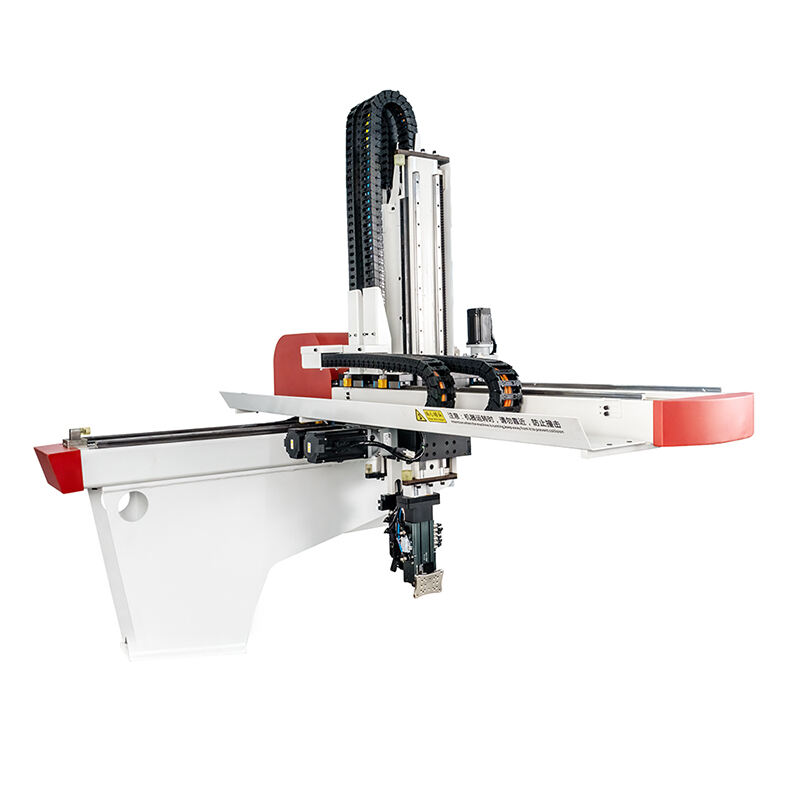Introduction:
In the fast-paced world of industrial automation, the advent of the full servo manipulator has transformed manufacturing processes, offering unparalleled precision and control. This essay explores the intricacies of the full servo manipulator, distinguishes it from conventional robots, and delves into the advantages that make it a game-changer in various industries.
1. What is a Full Servo Manipulator?
A full servo manipulator is an advanced robotic arm or manipulator that relies on servo motors for precise control and movement. Unlike its predecessors, which often used hydraulic or pneumatic systems, the full servo manipulator leverages electrical servomechanisms. This innovation enables a higher degree of accuracy and responsiveness, making it a preferred choice for applications demanding intricate and precise tasks in diverse industrial settings.
2. The Difference Between Servo Manipulator and Robot:
While the terms "servo manipulator" and "robot" are frequently used interchangeably, it is crucial to recognize the nuanced differences between the two. A servo manipulator refers specifically to a robotic arm equipped with servo motors for controlled movements. On the other hand, the term "robot" encompasses a broader spectrum of automated systems, including those with additional capabilities such as sensory perception, decision-making, and a diverse range of task execution.
In essence, every full servo manipulator is a servo manipulator, but not all servo manipulators can be classified as full-fledged robots. The distinction lies in the complexity of the system and the extent of autonomy, with full servo robots typically possessing advanced features beyond mere manipulation.
3. Advantages of Servo Manipulator:
a. Low Maintenance Costs:
One of the standout advantages of employing servo manipulators is the reduction in maintenance costs. The use of electrical servo motors enhances the durability and reliability of these systems, leading to fewer components prone to wear and tear. Consequently, this results in extended operational lifespans, decreased downtime, and overall lower maintenance expenses compared to traditional robotic systems.
b. Cost-Effectiveness:
The modular nature of servo manipulators allows for seamless integration into existing manufacturing processes, making them a cost-effective solution for industries seeking to enhance automation without significant capital investment. This affordability makes servo manipulators an attractive choice, particularly for small and medium-sized enterprises looking to improve operational efficiency on a budget.
c. Alternative to Labor:
Servo manipulators serve as a viable alternative to manual labor in tasks requiring precision and repetition. Automation of such processes not only reduces human error but also enhances product quality and ensures consistent output. This not only improves efficiency but also addresses labor shortages, allowing human workers to focus on more complex and creative aspects of production.
d. Cost Reduction in Employment:
The implementation of servo manipulators results in significant cost reductions associated with human employment. While creating new opportunities for skilled jobs in robotics maintenance and programming, the overall labor costs decrease as tasks are automated. This is particularly advantageous in industries where repetitive and physically demanding tasks are prevalent, allowing human workers to concentrate on more intricate and value-added aspects of production.
Conclusion:
In conclusion, the full servo manipulator stands as a testament to the ongoing evolution of industrial automation. Its precision, cost-effectiveness, and ability to serve as an alternative to manual labor make it a crucial player in enhancing efficiency and reducing operational expenses across various industries. As we embrace the era of advanced automation, the full servo manipulator emerges as a key player in shaping the future of manufacturing and redefining the dynamics of the modern workforce.

Copyright © Guangdong Heeexii Robot Technology Co., Ltd. All Rights Reserved